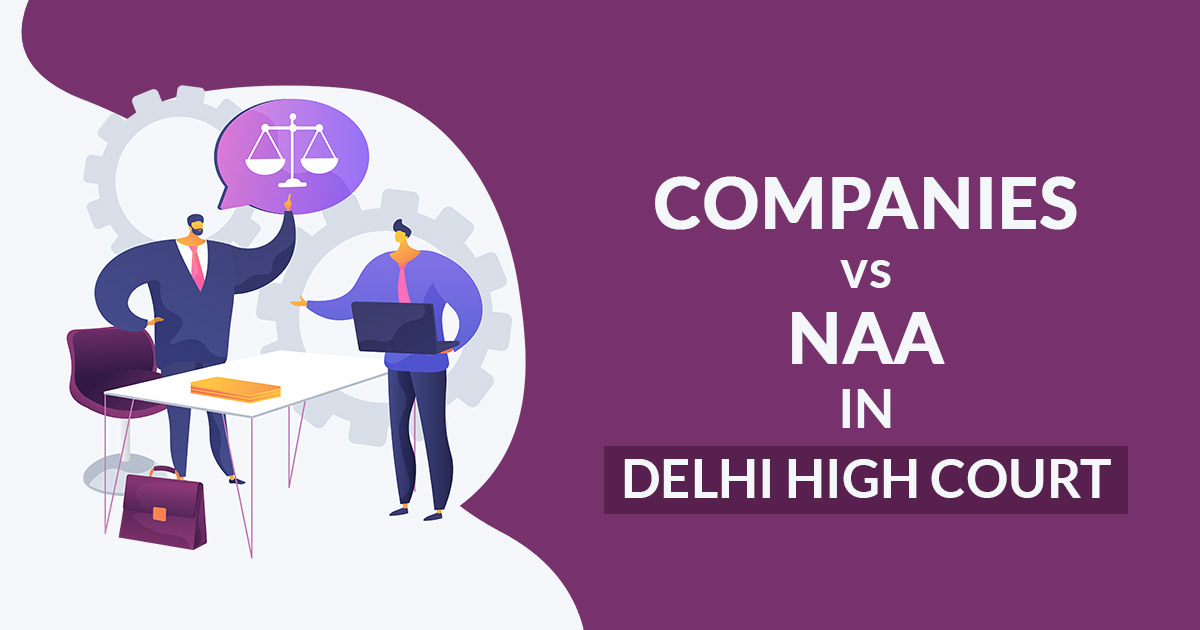The firms said to the Delhi high court that the National Anti-profiteering Authority (NAA) was not following the left process of law and was not starting the left procedure inside law with respect to them when there was no cut in the goods and services tax (GST) rates or any rise in the ITC.

The constitution is then also being pointed about the validity of setting the National Anti-profiteering Authority (NAA) 
Previously the court has clubbed the appeal of more than 50 companies which consists of HUL, Abbott, Johnson & Johnson, Philips, Acme Developers, Samsonite, Jubilant Foods, Nestlé, Whirlpool, Samsung, Subway, Reckitt Benckiser, and Patanjali, against NAA, Abhishek Rastogi, counsel for various applicant added.
Towards the firms, Rastogi, partner at Khaitan & Co, held that “There have been various instances where the process has not been followed — there is no recording of the prima facie evidence or any conclusive report by the standing committee or the screening committee.”
The counsel indeed commented that there were cases in which the real estate projects starting post to the GST cut-off date had been investigated for the supposed profiteering.
“The first test of anti-profiteering is that there should be a decrease in the tax rate or increase in input tax credit. The instances where there is an absence of these two factors, we have taken them to the court at the DGAP (Directorate General of Anti-profiteering) stage itself,” he commented.
Clause 171 has been embedded in the GST Act which renders it compulsory to the firms to give the advantages as per the reduction in the tax rates or from ITC to the consumer through the way of the corresponding cut in rates.
“The constitutional validity of anti-profiteering provisions was argued today. The validity of the provisions mentioned in Section 171 needs to be tested in the absence of any methodology prescribed to determine the quantum of profiteering,”
He held that presently the court urges to determine if the provisions of the anti-profiteering were constitutional. Post the court chooses the loyalty of the plan, it will go into the information of the specific facts he said.